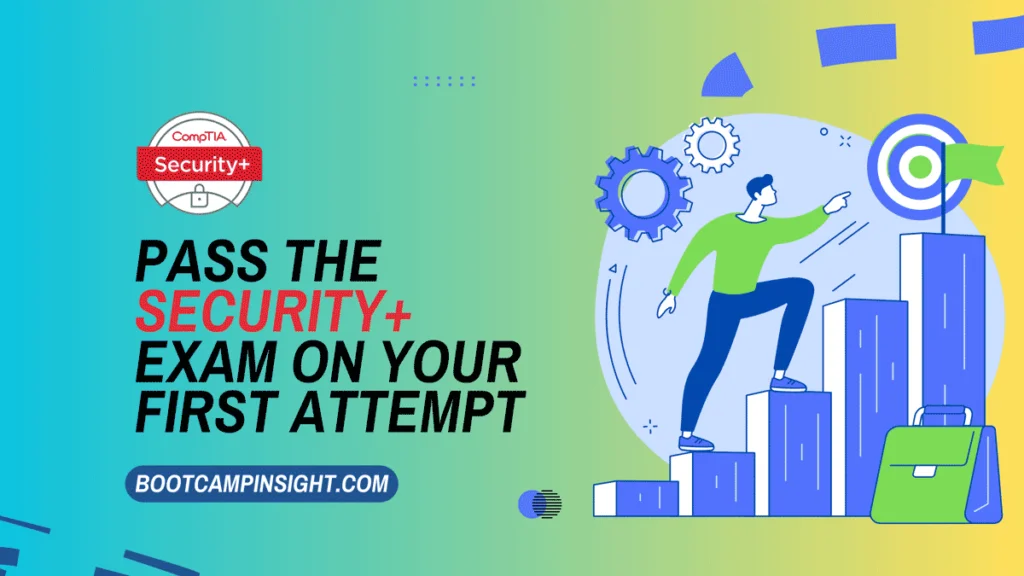Passing the CompTIA Security+ exam on your first attempt is possible, even if you have no prior experience. With the right resources, study strategy, and mindset, you can conquer this entry-level certification and step confidently into the world of cybersecurity.
Based on insights from those who’ve passed the exam, I’ve compiled a guide to help you increase your chances of success.
Table of Contents
1. Start with the Right Study Materials
You don’t need to use every single resource out there, but choosing a combination of high-quality ones can make all the difference. Here’s a breakdown of some of the most popular study materials, rated by successful test-takers:
- Professor Messer’s Course (10/10): A go-to for many, Professor Messer’s free YouTube series provides excellent coverage of exam topics in a straightforward manner. His content is up-to-date, and his practice exams are widely praised for their accuracy.
- Jason Dion’s Udemy Course (8.5/10): While some felt Dion’s course was a bit overwhelming in terms of detail, it offers strong foundational knowledge and complements Messer’s course well.
- Darril Gibson’s Book (10/10): Gibson’s materials, despite his passing, continue to be a favorite among Security+ candidates. His approach helps demystify tricky concepts.
- Practice Exams: Both Messer and Dion offer solid practice exams. Messer’s tests are appreciated for their explanations, which provide links to specific topics for review. Dion’s exams, though heavy on acronyms, help you get used to how CompTIA asks questions.
Read More: CompTIA Security SY0-701 Exam Dumps for Self-Assessment
2. Tackle the PBQs Early (or Skip Them, Depending on Your Style)
Performance-Based Questions (PBQs) are notorious for being tricky. Some test-takers prefer to tackle them first to get them out of the way, while others skip them to save time for easier multiple-choice questions. As one successful candidate noted: “Despite reading everyone’s advice to skip the PBQs, I felt more comfortable dedicating the first 10 minutes to them. I flagged each one for review and ended up having 12 minutes left to make changes.”
Regardless of your approach, it’s crucial to practice PBQs beforehand. They’re often unlike what you’ll see in traditional practice tests, so familiarizing yourself with them will make you more comfortable on test day.
3. Consistency Is Key
The amount of material can feel overwhelming, especially if you’re new to cybersecurity. To stay on top of things, break your study sessions into manageable chunks. Many Exam Takers mentioned studying for 2–3 months, consistently revisiting difficult areas until they felt confident. Here’s a suggested study plan:
- Months 1–2: Watch Professor Messer’s or Dion’s video courses, making sure to take notes. Review each section multiple times to ensure a deep understanding.
- Month 3: Dive into practice exams. Don’t be discouraged by low initial scores. Use wrong answers as learning opportunities, returning to videos and notes to fill in knowledge gaps.
4. Focus on Acronyms and Ports
A significant portion of the Security+ exam revolves around memorizing key acronyms and port numbers. One Test Taker mentioned they spent extra time memorizing these critical details before sitting for the test:
“During this time, I also started to study the acronyms list and memorizing the ports.”
There are many online resources dedicated solely to acronyms and ports—make use of flashcards, quiz apps, or even write them down by hand until they’re second nature.
5. Don’t Get Bogged Down in the Details
While it’s important to know the material, try not to stress over every single concept. One test-taker shared their experience about information overload: “There was a lot more content than I expected, but knowing the exam objectives and having a basic understanding of each concept helped.”
Instead of aiming for perfection, focus on mastering the main concepts outlined in the Security+ exam objectives.
6. Practice Tests, Practice Tests, Practice Tests
Practice exams are a game-changer. They not only familiarize you with the types of questions you’ll encounter but also help you develop time management skills. Successful test-takers emphasized the importance of doing well on practice exams before attempting the real thing.
One Exam taker highlighted how their scores improved over time: “Honestly, I wasn’t doing well on the practice exams at first, scoring low 60s, but I worked my way up to a 75% average. I consumed nothing but Security+ for the last month and a half, and it paid off.”
Aim to score consistently in the 85–90% range on practice tests before scheduling your exam. If you can achieve this, you’ll likely be ready for the real thing.
7. Don’t Be Afraid to Retake the Exam (But Aim to Pass the First Time)
While the goal is to pass on your first attempt, remember that it’s okay if you don’t. Many professionals in the cybersecurity field have had to retake certification exams, and it’s not the end of the world. However, with the right study plan, focus, and practice, you’ll significantly increase your chances of passing the first time.
One exam taker shared a motivating piece of advice: “The worst thing that can happen is you have to take it again. Or, you could pass and do a happy dance.”
Final Thoughts
The Security+ exam is challenging, but with a solid study plan, consistent practice, and the right resources, you can pass it on your first attempt. Follow these tips, stay focused, and before you know it, you’ll be celebrating your certification success.
Good luck, and don’t forget to do your happy dance!



